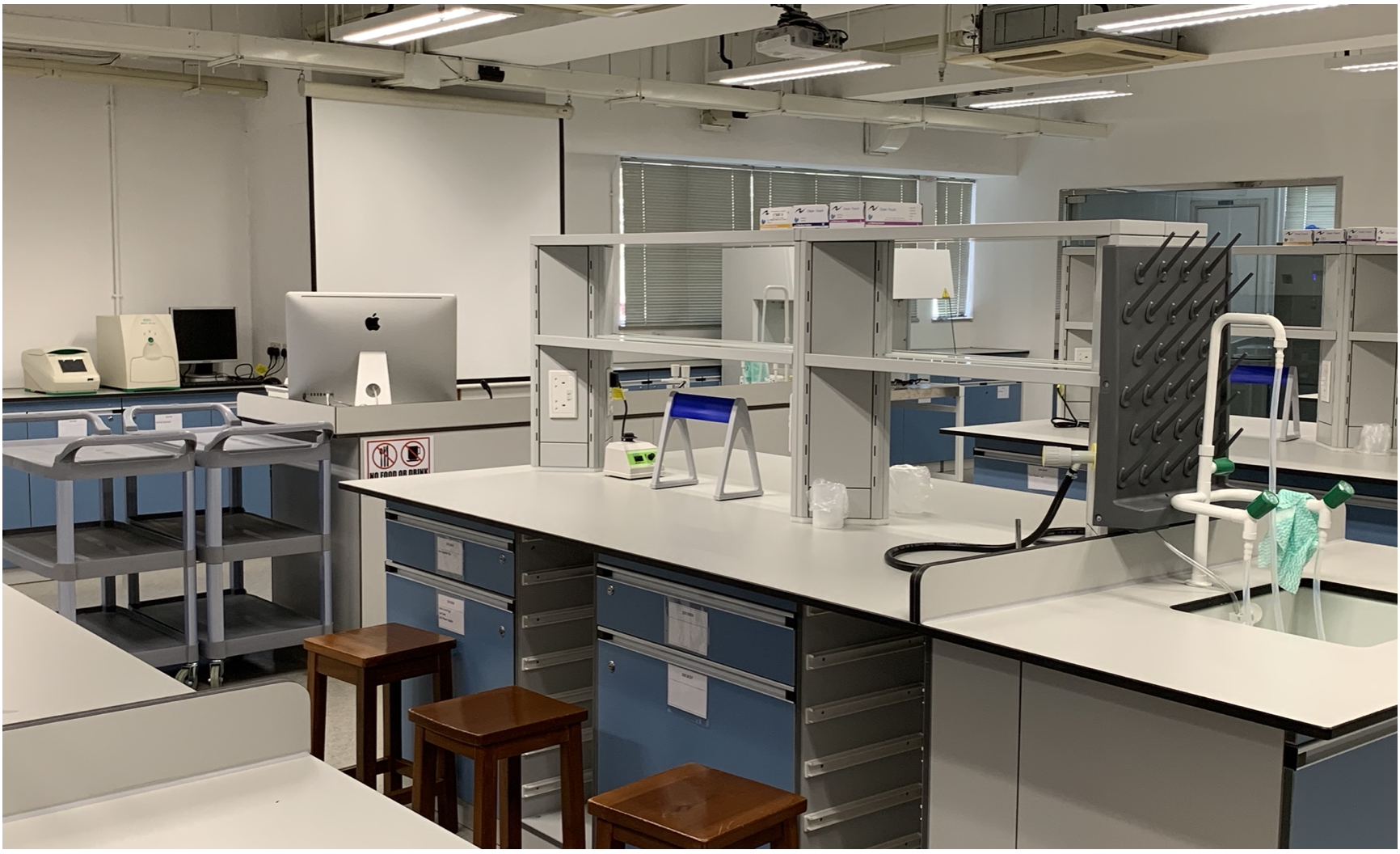Tony Tong Bio-Technology Laboratory

The laboratory has set up higher-standard laboratory equipment such as thermal cycler, autoclave, and small centrifuge to increase students' chances of participating in fingerprint identification and genetic modification related experiments. Students can find “murderers” through DNA comparison experiments, There are equipment and apparatus for students to do E. coli-related experiments. Students will be able to identify whether foods have been genetically modified, or even edit food genes. They can also have the opportunity to combine fruit genes to create the fruits of their minds.
The school's biotechnology curriculum mainly refers to the guidelines framework of the subject of the Education Bureau, and then prepares the school-based curriculum and teaching materials ranging from microbiology to genetically modified food arrangements and ethics. Prof. Y.H. Wong Division of Life Science, The Hong Kong University of Science and Technology has mentioned that the development of biotechnology courses has a large capital investment. Many schools have not set up this course, which makes the biotechnology admission difficult. Therefore, our school successfully invited him as the chief consultant of the course to guide us to design our science curriculum. Students with outstanding performance in the future will have the opportunity to participate in the precision experiment at HKUST and are expected to publish their results in research journals.
Last year, six teachers from the science department of our school wer arranged to go to the Open University for biotechnology experiment training. Our school is also applying for Quality Education Fund and we are looking forward to integrate information technology with biotechnology education. In the future, students will use the iPad to collect and analyze experimental data and use the AR (Augmented Reality) element to promote biotechnology education.
In order to make full use of the facilities, students who have mastered the experimental skills will be trained as "Little Teachers" in the future, and they will help pass the knowledge to the primary school students. We aim at nurture our students continue to experiment and assist those who are determined to make biotechnology a long-term development goal and have the opportunity to enter the field of life sciences.

 m.TNKJSC(Mobile)
m.TNKJSC(Mobile)  x.TNKJSC(moXo)
x.TNKJSC(moXo)  b.TNKJSC(liBrary)
b.TNKJSC(liBrary) 